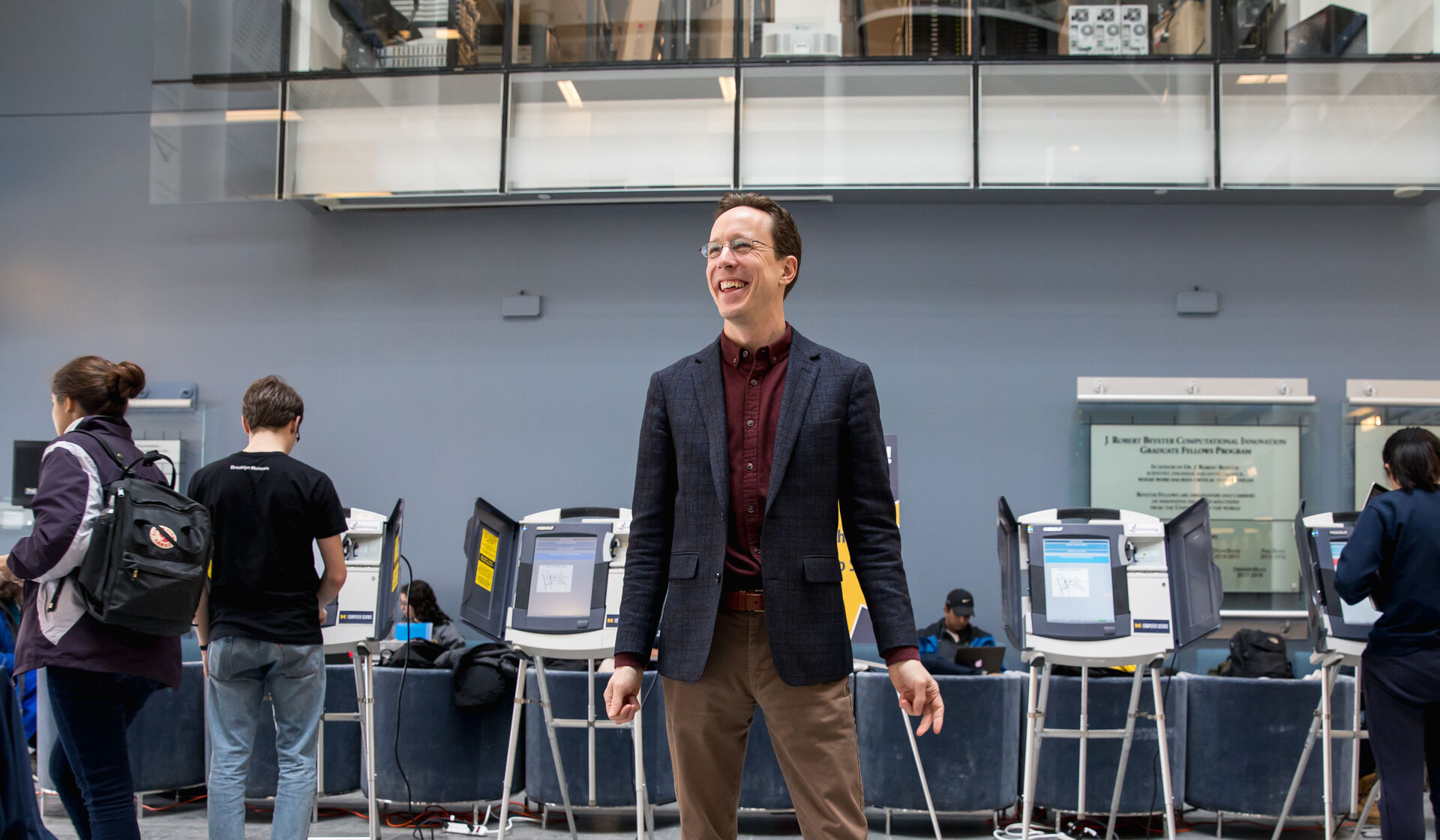A sudden move to New Orleans following Hurricane Katrina had lasting results for Stephanie Hepburn when she discovered a group of displaced workers.
Many people left New Orleans when Hurricane Katrina hit in August 2005, but Stephanie Hepburn, ’99, moved to the ravaged city in the wake of the storm. That decision changed not just her life, but her career. Today, she is the founder of an online, sustainable fashion startup called Good Cloth. She is also an important new player in a growing movement known as “slow fashion.” And all because of what she saw through a car window one day in February 2006.
At the time, Hepburn was with her boyfriend (now husband), who grew up in New Orleans and whose childhood home was destroyed by Katrina in 2005. They were driving downtown past City Park when Hepburn happened to spot what appeared to be a tent city in the distance. On closer inspection, she discovered a sea of people living in substandard conditions without running water. She later discovered they were charged $5 each time they used the bathroom.
The scene, she remembers thinking, could easily have been the slums of a third-world country, not an American city.
She later learned that many of the people living in the tents were a mix of New Orleans residents and migrant workers. She doesn’t know if these particular workers were exploited or trafficked, but it triggered her to dig deeper into the post-Katrina migrant worker experience. She discovered that a multitude of victims were trafficked into the Gulf Coast region from Thailand, India, and Latin America to help the rebuilding effort: a common phenomenon when devastation hits and cheap labor is in demand.
“We expect a dress or shirt to cost twice as much as our favorite coffee, which is insane”
Hepburn—who wrote “Women’s Roles and Statuses the World Over” while in law school at American University—began investigating the problem not only in the Gulf Coast region, but also nationally and worldwide. She interviewed attorneys, victims, journalists, and nongovernmental organizations, and began to put together a manuscript with her findings that turned into her second book, “Human Trafficking Around the World: Hidden in Plain Sight.” She sent the manuscript to Jennifer Perillo, senior executive editor at Columbia University Press.
“I remember when it came in; we were so pleased with it,” Perillo says of the book they published in 2013. “The sheer volume of data to be put together, compiled, checked, and re-checked was incredible. It is easy to conceive of a book that does all of that; it is a difficult task to pull it off.”
During her subsequent book tour, Hepburn had yet another career-altering moment. Responding to questions from everyday Americans wanting to help fight labor trafficking, she found her next goal.
“I told them to research the transparency and sourcing of designers and retailers before purchasing, but they promptly told me that though they wanted to shop ethically they didn’t have the time or expertise to do so,” said Hepburn. “That led me to found Good Cloth.”
Started in October 2014, Hepburn’s hope is that Good Cloth will effect change in the marketplace by giving consumers a socially conscious retail alternative. Hepburn exhaustively vets designers for Good Cloth, making sure none of them is a detriment to the planet, has links to sweatshops, or pays unfair wages. Her “slow fashion” startup has a level of transparency not often seen in “fast fashion,” where churning out styles and products for rock-bottom price is the accepted norm.
“We have a mindset that fashion is supposed to be cheap. We expect a dress or shirt to cost twice as much as our favorite coffee, which is insane,” Hepburn said, adding that quality items are designed to cost much more than your average latte. “I see Good Cloth as one essential instrument to providing a positive way for people to make a difference and do something great for laborers and the environment.”





